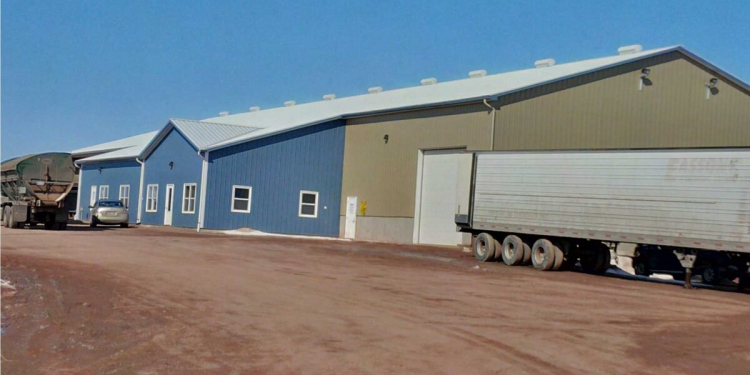Businesses and residents in Kensington, P.E.I., are already starting to feel the effects of the U.S. border being closed to fresh Island potatoes.

The town, located in the heart of a big potato growing area, is hugely reliant on the industry, which helps support grocery stores, restaurants and other local shops.
“This is the potato belt of P.E.I.,” said Wade Caseley, salesman at agricultural dealership Kensington Agricultural Services.
“Pretty much everybody who works in this town has some connection to the potato industry. You go down to the local restaurants here at dinner time — it’s all guys with coveralls on that came out of the potato fields.”
As such, it’s only natural Monday’s announcement that the Canadian Food Inspection Agency was suspending exports of non-processed potatoes to America made many town residents nervous.
“It was a little alarming,” said Kensington Mayor Rowan Caseley.
“Especially with Cavendish Farms up the road and all the potato farmers around here. And the impact of potatoes not being able to be shipped, specially the table stock, to the U.S is going to impact a lot of them.”
The mayor said the suspension will have ripple effects beyond the agricultural industry.
“It’s going to impact the farming community through purchase of vehicles, through purchase of trucks, the purchase of especially agricultural equipment,” he said.
“It’s just going to roll right down the line. There’s jobs. I know you hear about people … who have laid off and sent their staff home.”
The suspension follows the discovery of potato wart on two P.E.I. fields in October.
The federal government said it was put in place to prevent the U.S. from issuing their own ban, which they argue would’ve been more difficult to roll back.

Caseley said the news was a shock to him, as other people familiar potato wart would know that measures to prevent its spread have been in effect since the fungus was first discovered on the Island 20 years ago.
He said the announcement is a “big deal” for his store.
“We have 30 employees here at [Kensington Agricultural]. We all make our living from agriculture. The potato industry is obviously the biggest part of that,” he said.
“We’re dealing with guys coming in that have equipment ordered that are a little bit nervous, wondering what’s going to happen for the spring and trying to decide whether they’re going to continue with their purchase or not.”
The salesman said the timing of the ban couldn’t have been worse, coming after one of the best harvests the industry has had in years.
“[It was the] most optimism I’ve seen since I started here 10 years ago,” he said.
“Everybody was upbeat. There was enthusiasm. Guys were looking to invest in their farms with equipment, buildings, land. It was it was a real big.”
Now, he just hopes the situation is resolved fast.
“Best case scenario is that we can get the border reopened and hopefully that’ll happen sooner as opposed to later,” he said.
“The coveted Christmas market season is right around the corner that is huge for our table stock growers. We need this to be rectified immediately.”






